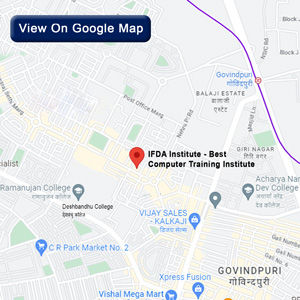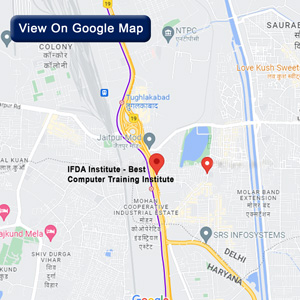Business Analyst Interview Questions: What to Expect and How to Prepare

With no time to lose, preparing for the business analyst interview process is important for aspiring BAs. It is a business analyst’s work that links the gap between business goals and IT solutions. This means that employers do not only want to know about your technical abilities but also whether you can critically analyze situations, communicate effectively, and tackle problems in a complex manner. Here is an overview of commonly asked business analyst interview questions and how to go about them.
1. What is a business analyst, and what are their key responsibilities?
Answer:
As you know, a business analyst’s job is to recognize the necessities of a business, analyze its processes, and offer recommendations for enhancing productivity and efficiency. Among the principal obligations are collecting and recording requirements, conversing with those involved, conducting gap investigations, and confirming that there is a correlation between solutions applied in practice and the intended objectives that companies have set up.
Tips:
Having expertise in the position is crucial.
It's imperative that we put more emphasis on working together as well as sharing information effectively.
Make yourself available to address particular accountabilities and their significance in ensuring a project achieves its objectives.
2. How do you approach requirement gathering?
Answer:
My method of requirement gathering begins with knowing and involving key stakeholders. In order to get their input, I conduct interviews, hold workshops, and use surveys. Besides, I observe processes and study the existing documentation. After collection, I make sure that requirements are well documented, verified, and accepted by investors.
Tips:
Underline your means of requirement gathering.
Talk about how important it is for stakeholders to be involved.
State how you guarantee that all requirements are correct and complete.
3. Can you explain the difference between a functional and non-functional requirement?
Answer:
Functional requirements specify the actions that must be taken by the system, for example, specific activities or including processes. For instance, in order for users to gain access to their accounts through email, there is a requirement that relates to system functionality. Non-functional requirements define how a program accomplishes a task; hence, they may include the need for enhanced performance, security, and/or usability. The login page must load within two seconds in this case.
Tips:
Be sure to clarify terms and give instances where necessary.
Explain why it is critical that the project pay attention to both kinds of requirements.
Describe how you will address them in your analysis phase.
4. How do you prioritize requirements?
Answer:
There are many ways I prioritize requirements, including the MoSCoW (must have, should have, could have, and won’t have) analysis and the value versus complexity matrix. Other factors to consider include stakeholder needs, business value, and project constraints. In order to make sure that prioritization goes along with business goals, there should be regular conversations with stakeholders
Tips:
You will exhibit your ability to use prioritization approaches.
Emphasize how collaboration with stakeholders contributes to this.
Analyze the effect of prioritization on project delivery.
5. What tools and software do you use as a business analyst?
Answer
I am skilled at data analysis with tools such as Microsoft Excel, process modeling by using Microsoft Visio, and JIRA for project requirement tracking. Also, I apply different wireframing tools, like Balsamiq, to designing user interfaces and SQL for querying databases when it’s needed.
Tips:
Explain the tools to use and their roles in assisting you or any other requirements in your daily activities. Be ready to say why you like some better than others. Illustrate how these tools help you become more efficient and accurate as a business analyst.
6. Describe a time when you faced a challenging stakeholder. How did you handle the situation?
Answer:
I have had this situation where there were conflicting requirements from the stakeholders who did not want to change anything. It was at this juncture that I thought it best to keep an ear to listen carefully to what my clients needed so that I could see things from their angle. At the end of the day, a workshop that brought together both parties’ needs and organizational goals could be conducted to show how important the proposed solution would be. Keeping in touch with them all along through talking and showing understanding made me win their trust, and thus we carried on with our project.
Demonstrate how you solve problems and negotiate.
Stress the need for communication and empathy.
Give a particular instance that shows your capacity to deal with difficult stakeholders.
7. How do you handle changes in project requirements?
Answer:
My assessment of the effects of alterations to a project’s expectations includes considering how they affect its scope, timeline, and financing. Any modifications made will be communicated to relevant parties, and project team members will be involved in making adjustments. Besides, I confirm that every change is recorded and all new specifications validated and authorized before they are put into action
Tips:
Discuss your process for managing changes.
Explain why it is critical to communicate and document decisions made.
Demonstrate your ability to be flexible and adaptable without compromising the project’s integrity.
8. Can you explain a use case and its significance in business analysis?
Answer:
According to the business world, use cases provide an elaborate account of how a specific user gets interactive with a system to accomplish a certain goal. It helps to straighten out functional requirements, understand user interactions, and identify possible problems before actual programming work begins. Thus, they are much relied on in passing requirements between parties concerned with development and those who are developing it.Accept it as it is; there’s nothing that can be done about it, so don’t even try.
This is a good place for a definition and an example.
Discuss how use cases fit into the overall analysis process.
Enumerate the advantages of using use cases in planning and executing projects.
9. How do you ensure that the solution you recommend meets the business objectives?
Answer:
The solution is always made to be in line with business goals through continuous requirement validation against project goals. In addition, I also engage stakeholders in regular reviews and employ key performance indicators (KPIs) to monitor success. A detailed assessment is conducted after implementation to verify whether the solution provides the expected outcomes.
Tips:
Ongoing validation is extremely important.
KPIs and performance measurement play a major role in determining goals
I am very committed to providing solutions that increase value for the business
10. What role does data analysis play in your work as a business analyst?
Answer:
Data analysis is vital for spotting trends, patterns, and insights that support decision-making. A lot of my work involves employing data analysis to affirm beliefs, gauge dangers, and enhance processes. Understanding how people interact with products or looking at financial figures, I always depend on data-derived information to give recommendations that fit the organization's developmental goals.
Tips:
Illustrate specific illustrations of data analysis’s influence on your tasks.
Elaborate on the instruments and methods you employ in data evaluation.
Point out the significance of using data in making choices about business assessment
Conclusion
It is very important for you to comprehend not only the technical components but also the interpersonal ones regarding preparing for a business analyst interview. Reviewing these commonly asked questions during job interviews and tailoring your responses accordingly can help increase your chances of success in this field. Be sure to support this with examples from past experiences, demonstrate familiarity with various business analysis tools and techniques, and ensure that effective communication with stakeholders at all levels is conducted. To properly present yourself in front of potential employers, thorough preparation is essential, enabling you to land that dream job as a business analyst.
- Written By - Natasha Singh









